Cacio e Pepe Pasta
Cacio e Pepe Recipe: Learn How To Make Cacio e Pepe like Top Chef’s do it, with just 6 ingredients… Including our secret ingredient!
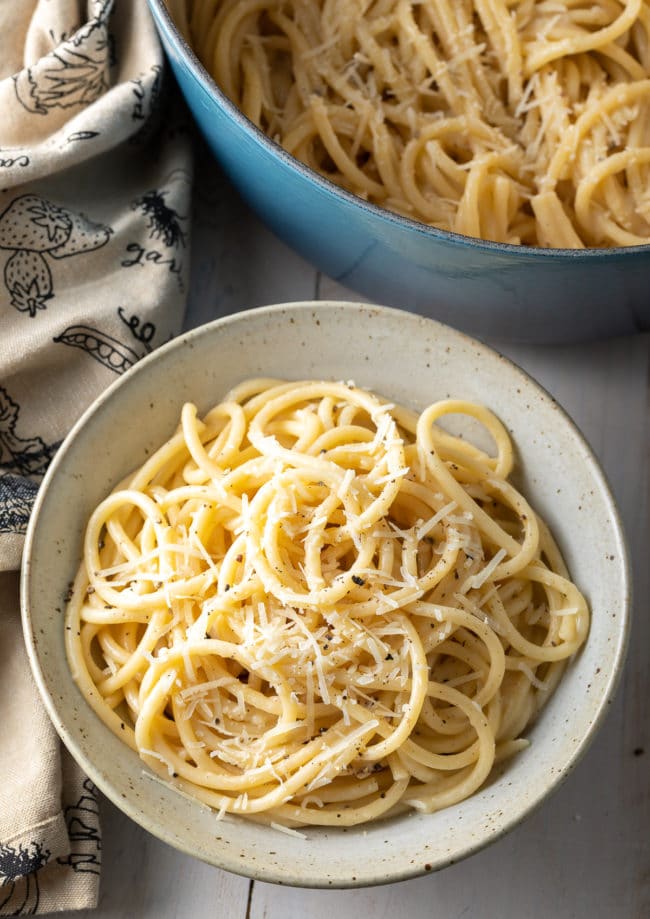

Sommer’s Recipe Notes
Oh guys, do I have a winning recipe for you today! We are making fresh and fabulous Cacio e Pepe. A simple silky pasta dish with loads of cheesy flavor.
If you’ve been wondering what to make your sweetheart for date night this week. Build your menu around this dish.
What Makes Our (Best) Cacio e Pepe Recipe Special?
There are a lot of Cacio e Pepe Recipes out there, and they are probably all pretty darn good. However, this is why we think you should try our method…
One-Pot Cooking – This is not a gimmick to make you try this recipe. You really only need a single pan to make this dish. The sauce does not need to be prepared separately from the pasta. Furthermore, you do not want to drain the pasta, because the starchy liquid adds to the overall texture of the sauce. Therefore, we are using a one-pot method to cook the pasta to perfection!
Bucatini – Of course, all pasta dishes are better when made with fresh pasta. However, if you don’t have time to make fresh pasta, or access to buying it, I have found bucatini is a better choice for Cacio e Pepe than spaghetti. Why? Bucatini is very similar to spaghetti, but each strand of pasta has a hole running through the middle. Therefore, when you bite down, it gives a little and emulates the feel of biting into freshly-made pasta more than spaghetti. Try it… You’ll see.
Boiled in Chicken Broth – That’s right! To infuse more flavor into the pasta prior to adding the cheese, our secret ingredient and cooking tip is to boil the pasta in chicken broth, rather than water. (Or vegetable broth for a vegetarian version.) You’ll be amazed at how much better it tastes!
Toasted Pepper – One more thing that makes a huge difference in the flavor of the Cacio e Pepe is to toast the freshly cracked pepper before mixing it into the pasta at the end.
Two Cheese = Double the Flavor – Some Cacio e Pepe Recipes call for just parmesan cheese. However, the nuttiness and silkier texture of pecorino cheese take this recipe to the next level of deliciousness.
Off the Block – It’s common to want to skip the step of grating your own cheese… But don’t do it! Freshly grated cheese has a much better flavor, texture, and melting ability than packaged grated cheese.
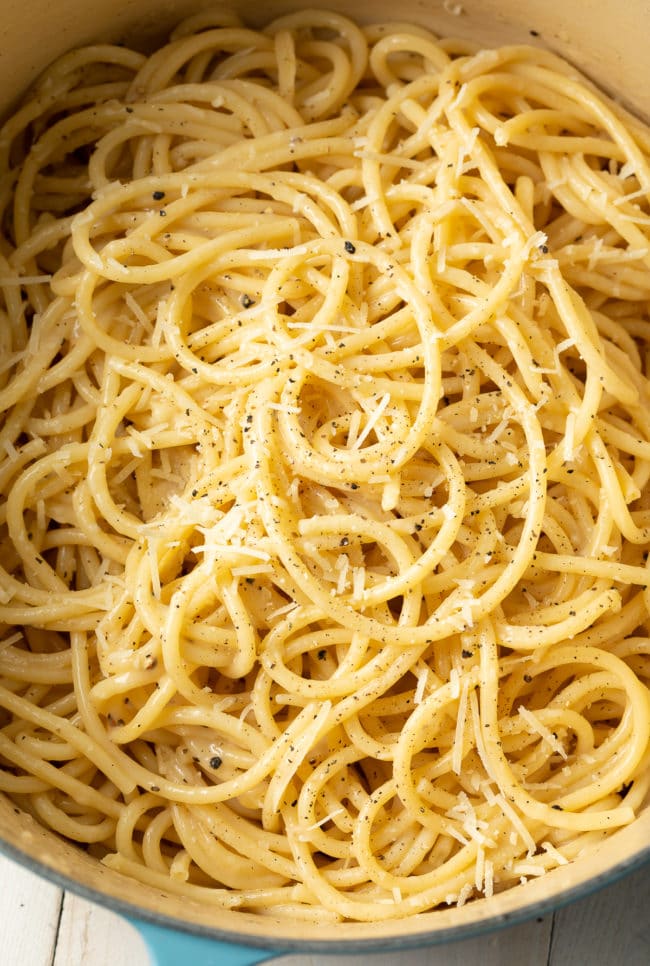
Ingredients You Need
- Cracked black pepper – Freshly cracked and toasted.
- Bucatini pasta – Fresh or dried.
- Chicken broth – Or vegetable broth for vegetarians.
- Butter – To create the silky sauce base.
- Parmesan cheese – Freshly grated off the block.
- Pecorino cheese – Freshly grated off the block. *If you are budget-minded and only want to buy one block of cheese, go with pecorino!

How To Make Cacio e Pepe
Tips for Success – Pick the Right Pot. Make sure the pot or pan you use is wide enough to account for the length of the pasta. The pasta should be able to fit flat on the bottom, so it is fully submerged in liquid.
Find the full Cacio e Pepe recipe with ingredient proportions, detailed instructions, and a video tutorial in the printable form at the bottom of the post.
Recipe Variations
Just to be a stickler, if you start adding things to your Cacio e Pepe, it’s technically no longer Cacio e Pepe. But that doesn’t mean it won’t taste amazing! Try this recipe with:
- Roasted garlic
- Spinach or kale
- Crushed red pepper
- Roasted red peppers
- Toasted nuts
- A dollop of basil pesto
- Grilled shrimp
- Minced anchovies


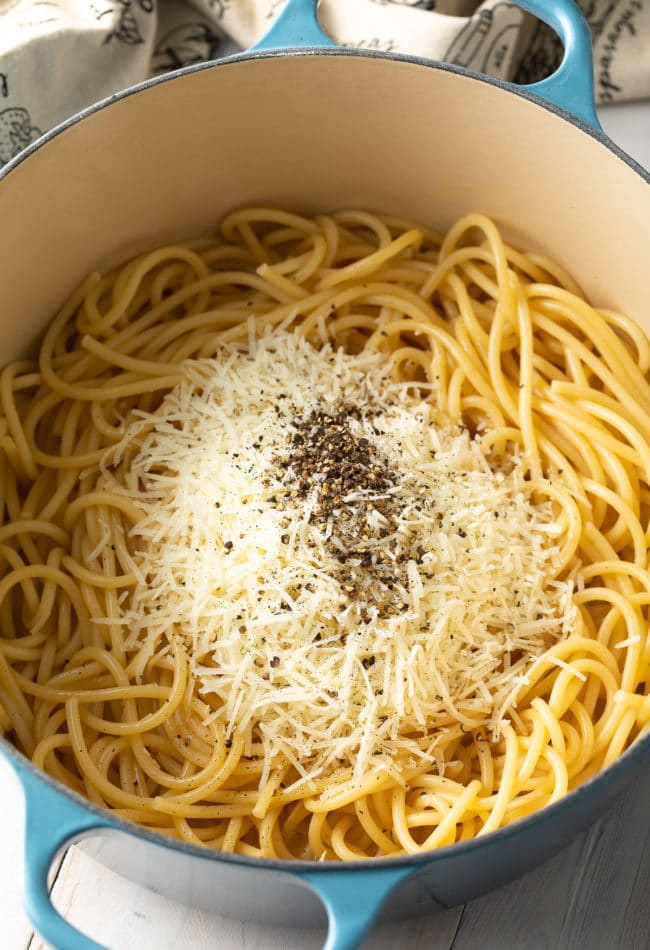
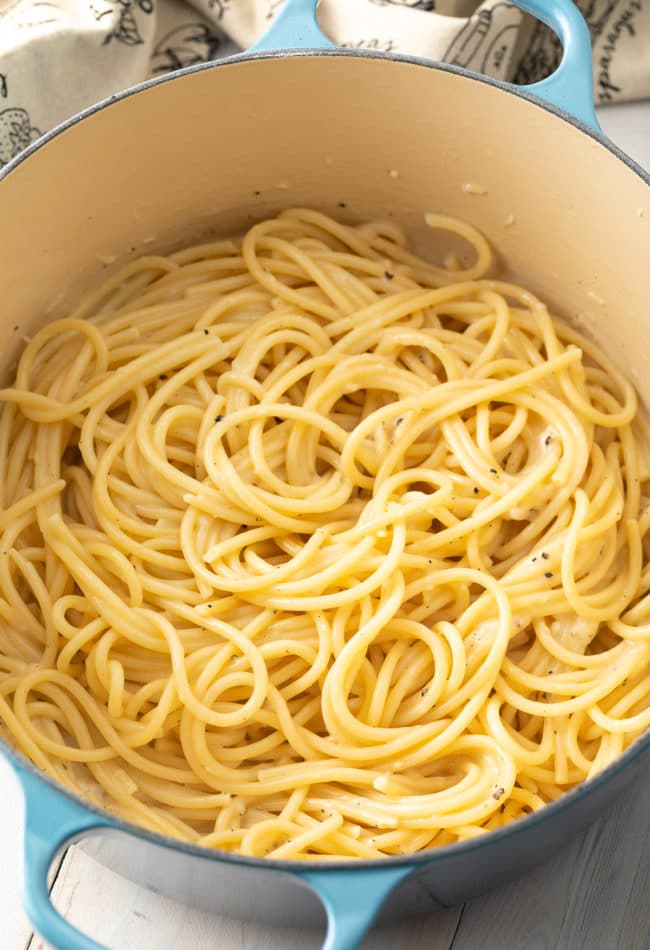
More Comforting Pasta Dishes
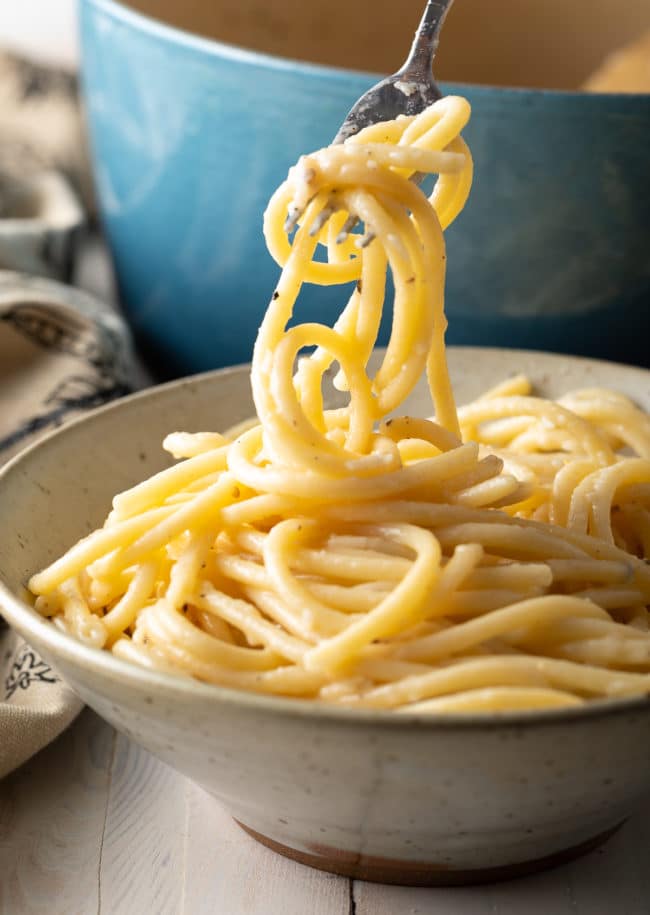
Frequently Asked Questions
Cacio e Pepe is a Roman pasta dish with a light velvety dressing of molten cheese and cracked black pepper. The name literally means cheese and pepper. It’s a rather simple dish in flavor, but oh what a flavor it has!
This seemingly humble pasta recipe offers the comfort of the beloved childhood meal of “spaghetti with butter and parmesan cheese.” Yet it’s so much more than that. Cacio e Pepe is decadent and nutty with the perfect contrast of al dente pasta texture and hot, silky cheese.
When you look at our photos, you might be tempted to think Cacio e Pepe is just a lighter version of Fettucini Alfredo. However, there are some pretty significant differences. It should be stated that Cacio e Pepe is an authentic Italian recipe, while Alfredo Sauce is an Italian-American creation.
The “sauce” on Cacio e Pepe is made entirely by the starchy pasta liquid, a little butter, fresh cracked pepper, and cheese. The pasta is lightly kissed with sauce, so the pasta itself has the ability to shine.
However, Alfredo Sauce is usually made with whole milk/cream, butter and flour to create a roux, and cheese. The richness of the cream often mellows the flavor of the cheese, so it is not as intense as Cacio e Pepe. Alfredo Sauce is much thicker and is usually applied more liberally to the pasta. Overall, it’s a saucier dish with a milder flavor.
Cacio e Pepe is BEST when freshly made and served immediately. Because the sauce is thin and lightly applied, the pasta absorbs the sauce over time and loses some of its appeal. It is not the best make-ahead, meal prep, or freezer meal.
That doesn’t mean your leftovers will go to waste! Simply add another splash of chicken broth as you rewarm it, and the sauce on the noodles will loosen up a little.
Yes, you can use another broth in this recipe, like vegetable broth or mushroom broth, to make this a vegetarian dish.
If you feel your Cacio e Pepe has tightened up too much before serving, feel free to add another splash or two of chicken broth to loosen the cheese sauce.
Pecorino and Parmesan cheese are the only options for a classic caio e pepe recipe. However, feel free to experiment with any hard cheese you like!
Cacio e Pepe Recipe
Video
Ingredients
- 1 teaspoon fresh cracked black pepper
- 1 pound dried bucatini or spaghetti (or fresh-made!)
- 5-6 cups chicken broth (or vegetable broth)
- 2 tablespoons butter
- 1 cup freshly grated parmesan cheese (off the block)
- 1 cup freshly grated pecorino cheese (off the block)
Instructions
- Set a large 6+ quart saucepot or sauté pan (with a lid) over medium heat. Make sure the pot/pan is wide enough to account for the length of the pasta. It should be able to fit flat on the bottom, so it is fully submerged in liquid. (Do not add these ingredients yet; just check for size.)
- Add the cracked pepper to the dry pot and toast the pepper for 1-2 minutes. Shake the pan to roll the pepper around. When it releases a strong peppery aroma, dump it out on a plate for later use.
- Add the bucatini and 5 cups chicken broth. Throw in a large pinch of salt. Make sure the pasta is fully submerged. Cover the pot and bring to a boil. Once boiling, stir the pasta vigorously, so it doesn't stick together, then continue boiling, uncovered, until al dente, usually 7-8 minutes. (Check your package instructions, so you don't overcook the pasta. It should just be slightly firm in the middle.)
- Meanwhile, grate the cheeses. Once the pasta reaches al dente, there should be just a little broth left in the pan. (about 1/4-1/2 inch liquid) Add the butter to the pasta, and stir well to coat.
- Then toss in the cracked pepper and both cheese. Stir while the cheeses melt. Then serve immediately with a sprinkling of extra cheese!

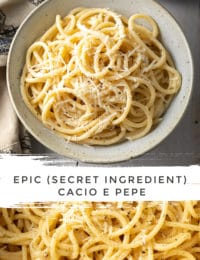

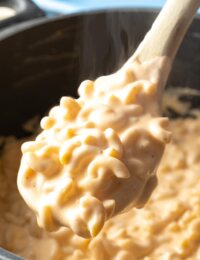
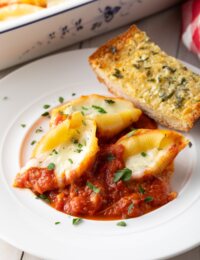




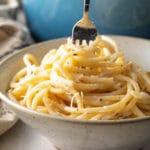

delicious! too much liquid at the end of the cooking process but i ladled the excess broth into a measuring cup to reserve for the leftovers before adding the pepper and cheese. Super easy, aside from fresh grating cheese but that is worth it. Will make again. I love anything one pot and fast!